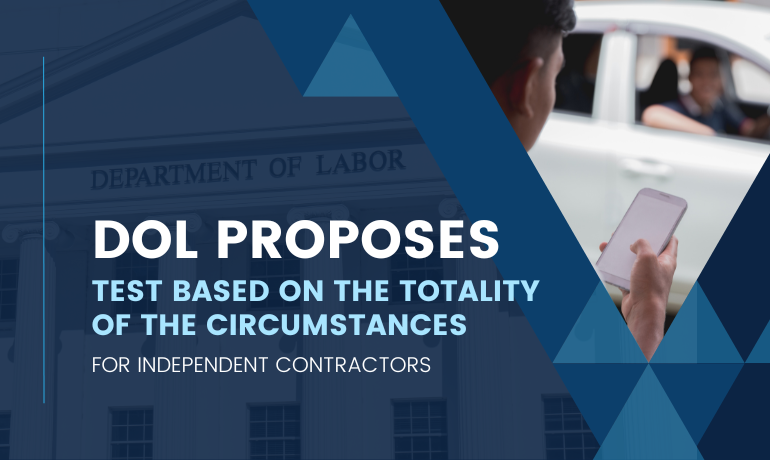FLSA’s independent contractor regulations, along with many federal laws under the DOL’s enforcement purview, have been subject to numerous presidential administrations that differed in their approach to the law.
During the final days of its administration, the Trump administration published its final independent contractor status rule that included an economic realities test. There was a particular focus on two factors: the degree and nature of control workers had over their work, and their opportunity to make money or lose money.
In less than a month after the rule’s unveiling, the incoming Biden administration proposed the first of two delays before ultimately withdrawing it. In its statement, the DOL said the Trump-era rule would have been confusing and disruptive for workers and businesses because it elevated two core factors contradicting opinions of both the U.S. Supreme Court and lower courts.
The Trump-era rule, however, was put into effect by a federal district court less than a year later, claiming that the Biden administration rescinded it in an improper manner under federal law.
The DOL announced plans for a new proposed rule in June, which was the subject of two online forums with employers and employees.
Jessica Looman, Administrator of DOL’s Wage and Hour Division, told reporters that the proposed rule aims to determine whether a worker is in business for themselves by using a “non-exhaustive, six-factor test.” The proposal would also analyze the control factors of unemployed independent contractors, including scheduling, supervision, price-setting, and employment opportunities.
According to Looman, independent contractors play a crucial role in our economy, whether they are freelancers or self-employed. “Many businesses rely on properly classified independent contractors,” she said. Historically, these workers were not covered by the FLSA. It is a matter of economic reality that independent contractors are in business for themselves, as the law makes clear.
Among the nonexhaustive factors DOL would consider when determining the economic reality of a working relationship are: Profits or losses can be realized based on managerial skill. Employee and employer investments. The duration of the work relationship. Aspects of control and nature. How integral the work is to the employer’s business. Ingenuity and skill.
A number of reporters questioned the proposal’s relevance to California’s “ABC Test” for independent contractors, which was outlined in Assembly Bill No. 5. However, Looman said that despite the Biden administration’s request for Congress to pass similar legislation at the national level, the DOL’s proposed standard adhered to precedent set by the Supreme Court.
The department will continue to follow the economic reality test as supported by decades of judicial decisions unless the law changes. MarketWatch reported that gig economy companies including Uber and Lyft saw their share prices drop sharply after the DOL’s announcement. Following publication of the proposal in the Federal Register, the Department of Labor will accept stakeholder comments for 45 days.



